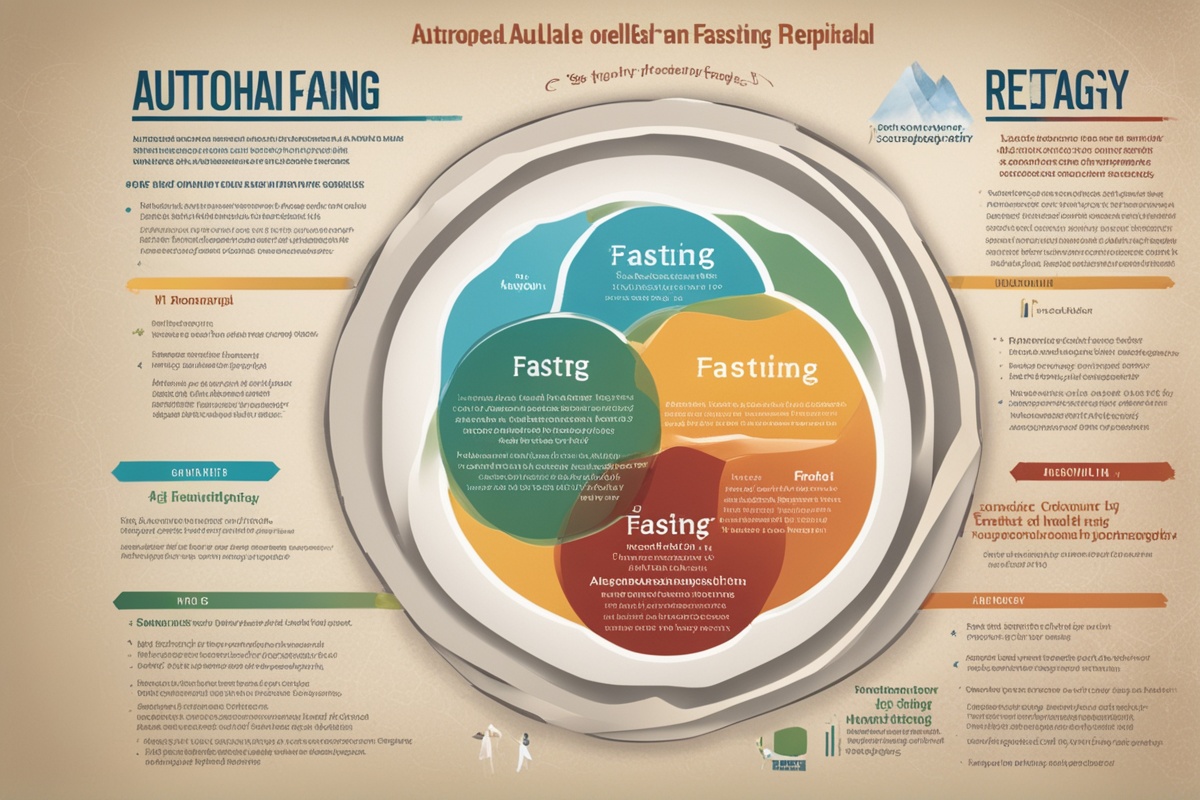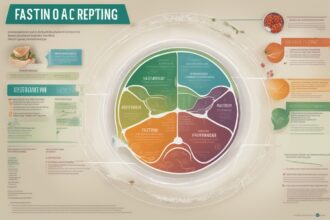Have you ever wondered how your body cleans house at a cellular level? Enter fasting autophagy—a fascinating process where fasting triggers your cells to recycle and renew themselves, potentially unlocking a host of health benefits. Autophagy, which literally means “self-eating,” is your body’s natural way of clearing out damaged components and making room for healthier, more efficient cells. When paired with fasting, this process gets a turbo boost, offering a powerful tool for wellness enthusiasts. In this post, we’ll dive deep into what autophagy is, how fasting enhances it, and how you can harness fasting autophagy to support your health goals. Let’s explore the science, benefits, and practical steps to get started!
What Is Autophagy and Why Does It Matter?
Autophagy is a cellular cleanup process discovered by Japanese scientist Yoshinori Ohsumi, who won the Nobel Prize in 2016 for his groundbreaking work. During autophagy, your cells break down and recycle old, damaged, or dysfunctional components—like proteins and organelles—turning them into energy or new building blocks. Think of it as a biological decluttering system that keeps your cells running smoothly. Without autophagy, cellular waste builds up, contributing to aging, inflammation, and even diseases like cancer or Alzheimer’s. So, why does fasting autophagy matter? Fasting acts as a trigger, ramping up this process when your body shifts from using readily available energy (like glucose from food) to tapping into stored reserves, prompting cells to clean house more aggressively.
How Fasting Triggers Autophagy
Fasting, especially intermittent fasting or prolonged fasting, creates the perfect environment for autophagy to thrive. When you stop eating for an extended period, your body’s insulin levels drop, and energy sources like glucose become scarce. This metabolic shift signals your cells to enter a survival mode, activating pathways like AMPK (a key energy sensor) while suppressing mTOR (a growth pathway that inhibits autophagy when active). Studies suggest that fasting-induced autophagy kicks into high gear after about 12–16 hours of fasting, though deeper effects may require 24–48 hours. This is why methods like the 16:8 intermittent fasting protocol or longer water fasts are often linked to enhanced cellular renewal. Essentially, fasting tells your body, “Hey, let’s clean up and optimize!”
Health Benefits of Fasting Autophagy
The potential benefits of combining fasting and autophagy are pretty exciting, and science is starting to back up what many health enthusiasts have long suspected. While research is ongoing, here are some of the standout advantages that have emerged from studies on autophagy and fasting:
- Anti-Aging Effects: Autophagy helps remove damaged cellular components, potentially slowing the aging process and improving skin health by reducing oxidative stress.
- Improved Metabolic Health: Fasting autophagy may enhance insulin sensitivity and support fat-burning by clearing out inefficient mitochondria, the powerhouses of your cells.
- Brain Health: Autophagy clears toxic proteins linked to neurodegenerative diseases like Alzheimer’s, and fasting may boost brain-derived neurotrophic factor (BDNF) for better cognitive function.
- Immune System Support: By recycling old immune cells, autophagy can help your body fight infections and reduce chronic inflammation.
- Cancer Prevention Potential: Early research suggests autophagy may prevent the growth of cancerous cells by eliminating damaged DNA, though more studies are needed.
These benefits highlight why autophagy through fasting is gaining attention in the health and wellness community. It’s not just about weight loss—it’s about optimizing your body from the inside out.
Practical Tips to Boost Autophagy with Fasting
Ready to try fasting for autophagy? You don’t need to jump into a week-long fast right away. Start small and build up as your body adapts. Here are some actionable tips to maximize autophagy while keeping things safe and sustainable:
- Try Intermittent Fasting: Begin with a 16:8 schedule—fast for 16 hours and eat during an 8-hour window. This often means skipping breakfast or eating an early dinner to extend your overnight fast.
- Stay Hydrated: Drink plenty of water during your fast to support cellular processes and prevent dehydration, which can stress your body and hinder autophagy.
- Avoid Overeating Post-Fast: When breaking your fast, opt for nutrient-dense foods like vegetables, lean proteins, and healthy fats to avoid spiking insulin, which can shut down autophagy.
- Consider Longer Fasts: If you’re experienced with fasting, a 24–48-hour water fast once a month may deepen autophagy fasting benefits, but consult a healthcare provider first.
Remember, consistency matters more than intensity. Even shorter fasts done regularly can stimulate autophagy over time, so find a rhythm that works for your lifestyle.
Other Ways to Support Autophagy Alongside Fasting
While fasting autophagy is a powerful combo, fasting isn’t the only way to encourage cellular cleanup. You can amplify the effects by incorporating other habits into your routine. For instance, exercise—particularly high-intensity interval training (HIIT)—can mimic the metabolic stress of fasting and activate autophagy pathways. A ketogenic diet, which keeps insulin low and promotes ketone production, also supports this process. Additionally, certain compounds like resveratrol (found in red wine and grapes) and curcumin (in turmeric) have been shown in studies to stimulate autophagy. Sleep is another underrated factor; poor sleep disrupts metabolic balance and can dampen autophagy, so aim for 7–9 hours of quality rest. Pairing these strategies with autophagy fasting techniques creates a holistic approach to cellular health.
Potential Risks and Precautions with Fasting Autophagy
While the idea of fasting to induce autophagy is appealing, it’s not for everyone, and there are risks to consider. Fasting can be stressful on the body if done improperly, especially for those with underlying health conditions like diabetes, eating disorders, or low blood pressure. Extended fasts may lead to nutrient deficiencies, fatigue, or muscle loss if not balanced with proper nutrition afterward. Pregnant or breastfeeding individuals and those on certain medications should avoid fasting without medical guidance. Always listen to your body—if you feel dizzy, weak, or unwell during a fast, stop and seek advice. The goal of fasting autophagy benefits is to enhance health, not compromise it, so start slow and prioritize safety.
As we’ve explored, fasting autophagy offers a remarkable way to support your body’s natural renewal processes, from slowing aging to boosting brain health. By strategically using fasting—whether through intermittent schedules or longer fasts—you can tap into this cellular cleanup mechanism and potentially transform your wellness journey. Remember, it’s not just about how long you fast but how you integrate it with a balanced lifestyle, including proper nutrition, exercise, and rest. If you’re new to autophagy through fasting, start with small steps, stay hydrated, and consult a healthcare professional if you’re unsure. Have you tried fasting to boost autophagy? Share your experiences or questions below—I’d love to hear how this powerful practice is working for you!






